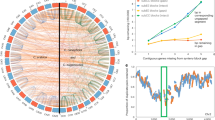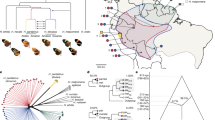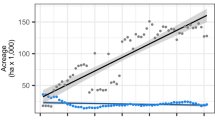Abstract
DR. BATESON in his letter on interspecific sterility (NATURE, July 15, p. 76) seems to lay insufficient emphasis on certain facts. If one considers plant and animal species in general, it would appear that interspecific sterility is by no means so general as was formerly assumed to be the case. Among the Œnotheras, in which great numbers of species crosses have been made, complete fertility, in the sense that large numbers of fertile offspring are produced, is the rule unless the forms differ in chromosome number. Even species of Œnothera which come from widely separated regions and differ conspicuously in all their characters, including flower-size, are fertile in crosses. That a certain amount of gametic and zygotic sterility also frequently occurs is of course well known, and it is probably correctly interpreted in terms of lethal factors. But lethal factors are not peculiar to wild species, for numbers of them arise in the mutations of Drosophila melanogaster.
This is a preview of subscription content, access via your institution
Access options
Subscribe to this journal
Receive 51 print issues and online access
$199.00 per year
only $3.90 per issue
Buy this article
- Purchase on Springer Link
- Instant access to full article PDF
Prices may be subject to local taxes which are calculated during checkout
Similar content being viewed by others
Author information
Authors and Affiliations
Rights and permissions
About this article
Cite this article
GATES, R. Interspecific Sterility. Nature 110, 179–180 (1922). https://doi.org/10.1038/110179c0
Issue Date:
DOI: https://doi.org/10.1038/110179c0
Comments
By submitting a comment you agree to abide by our Terms and Community Guidelines. If you find something abusive or that does not comply with our terms or guidelines please flag it as inappropriate.



